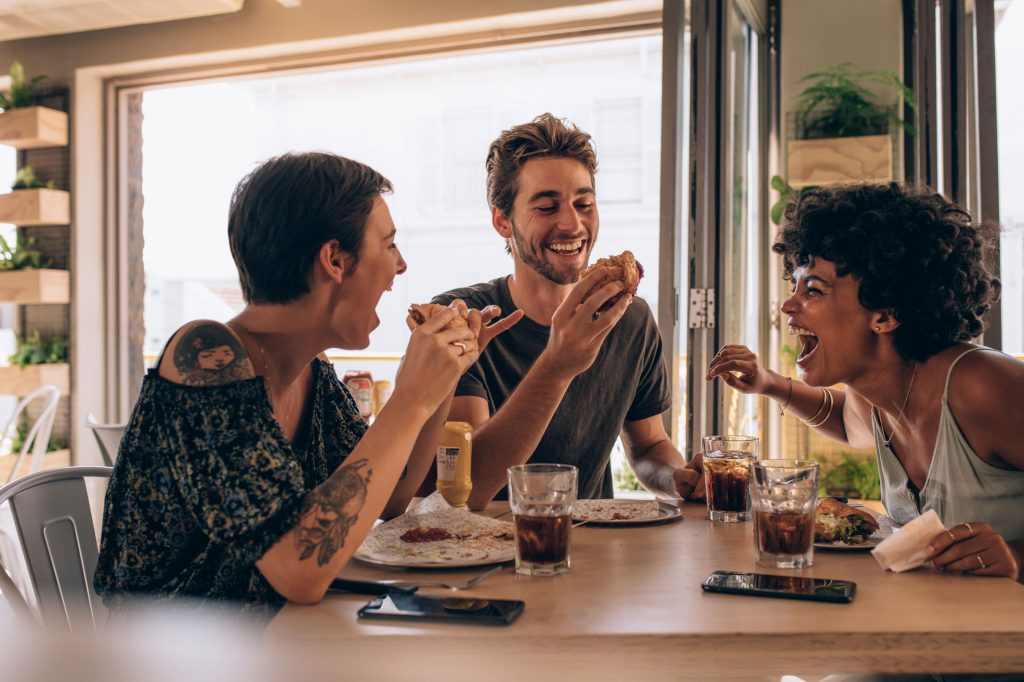by Dan Ketchum
“Munchies” and “science” aren’t words that you often hear in the same sentence, but maybe they should be. Post-cannabis cravings are more than just stoner movie logic — yes, marijuana can make you peckish, and yes, it really can elevate the intensity of your snacks. You know Mistifi loves crafting our pens with science at our side, and we’ve got the research to prove this one, too.
Why the Munchies, Though?
Whether you’re a connoisseur or just cannabis curious, there’s a good chance you’ve felt it: that big boost in your appetite a little after you partake, that “must-have-picnic-now” vibe. The feeling’s been culturally codified as the munchies, but before we answer the question of “why does food taste better high?” let’s tackle this one. Why do you want that food so badly in the first place?
A seminal study published by Nature Neuroscience in 2014 gives us that answer. According to a team of neuroscientists led by University of Bordeaux researchers, THC (tetrahydrocannabinol, the key psychoactive component of cannabis) triggers the brain’s olfactory bulb. The munchies are so real, in fact, that cannabis is often prescribed to medicinal users undergoing chemotherapy to stimulate the appetite, per Smithsonian Magazine.
More Cravings, More Taste: It’s All Tied Together
The heightened sense of appetite and the sensory enhancement that you experience while high actually go hand in hand. Ironically, an Oxford study theorizes that the feeling of highness produced by THC may actually be a self-defense mechanism to prevent the plant from getting eaten by ancient herbivorous animals. However, Nature’s researchers found that when that olfactory bulb is triggered in mice (which are very cognitively similar to humans), they smell food more acutely.
Typically, when mice (and humans) are continually exposed to a certain scent, the stimulus of that aroma is reduced. This behavioral pattern is known as olfactory habituation, a term popularized by Behavioral Neuroscience. When dosed with THC, though, olfactory habituation is lessened, so the sensory receptors remain piqued. And as it turns out, the triggered senses that get you more interested in food after you smoke or ingest cannabis are also why that food can be more enjoyable when you’re high.
Final Word: Why Does Food Taste Better High?
So the munchies are real, but why does food taste better high? Much of what makes food taste and smell better when you’re high boils down to how THC affects your senses in general. Our bodies have a built-in system that reacts to cannabinoids, appropriately known as the endocannabinoid system. When these receptors interact with THC, we often experience euphoria, reduced pain sensitivity and, yes, more acute senses of taste and smell. It’s the latter, of course, that makes the munchies taste so good.
On top of that, 2013 data published in Neuropharmacology notes that THC also tickles the nucleus accumbens region of the brain, which encourages the release of dopamine, the “feel-good” hormone. That means that while the taste and smell of your munchies are enhanced, you’re simultaneously getting a heightened sense of pleasure from eating them.
But what’s to say that this isn’t all just some sort of placebo effect? The researchers at Nature Neuroscience actually genetically engineered a group of mice to lack the specific type of cannabinoid receptor that triggers the olfactory bulb. Turns out that while the mice with the receptor intact kept eating beyond their usual appetite, those without it ate regularly.
Science. It’s a great thing to discuss when you’re high — but you should probably bring a snack.
Dan Ketchum is an LA-based freelance lifestyle, fashion, health and food writer with more than a decade of experience. He’s been fortunate enough to collaborate and publish with companies such as FOCL, Vitagenne, Livestrong, Reign Together, Out East Rosé, SFGate, the Seattle Times and more.
References:
Smithsonian Magazine – A Scientific Explanation of How Marijuana Causes the Munchies
Nature Neuroscience – The Endocannabinoid System Controls Food Intake via Olfactory Processes
National Library of Medicine PubMed.gov – Behavioral Neuroscience: Olfactory Bulb Habituation to Odor Stimuli
NCBI – Neuropharmacology: Cannabinoid Facilitation of Behavioral and Biochemical Hedonic Taste Responses

